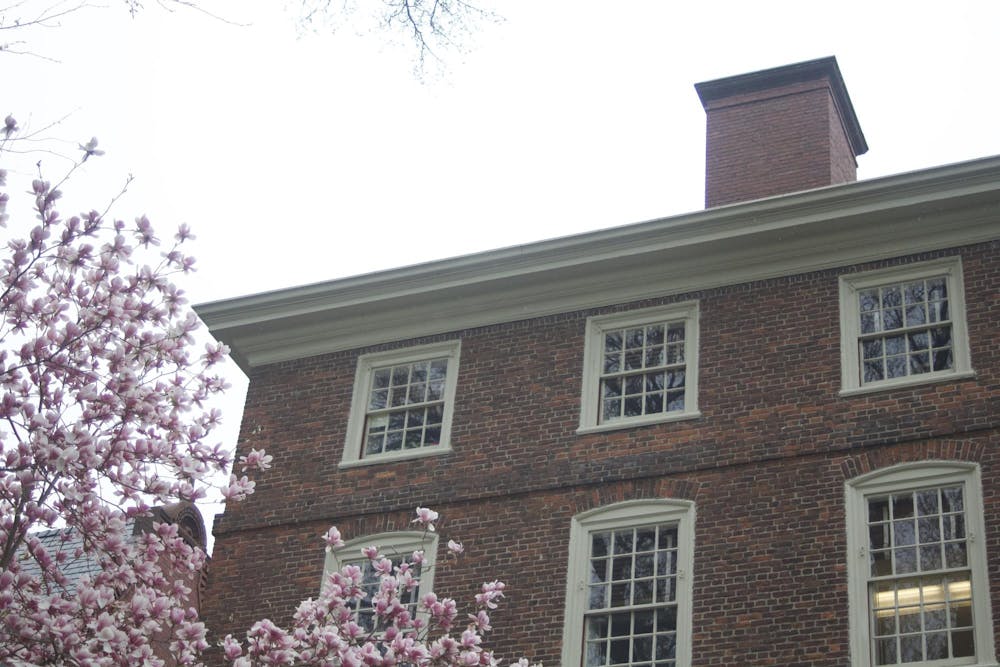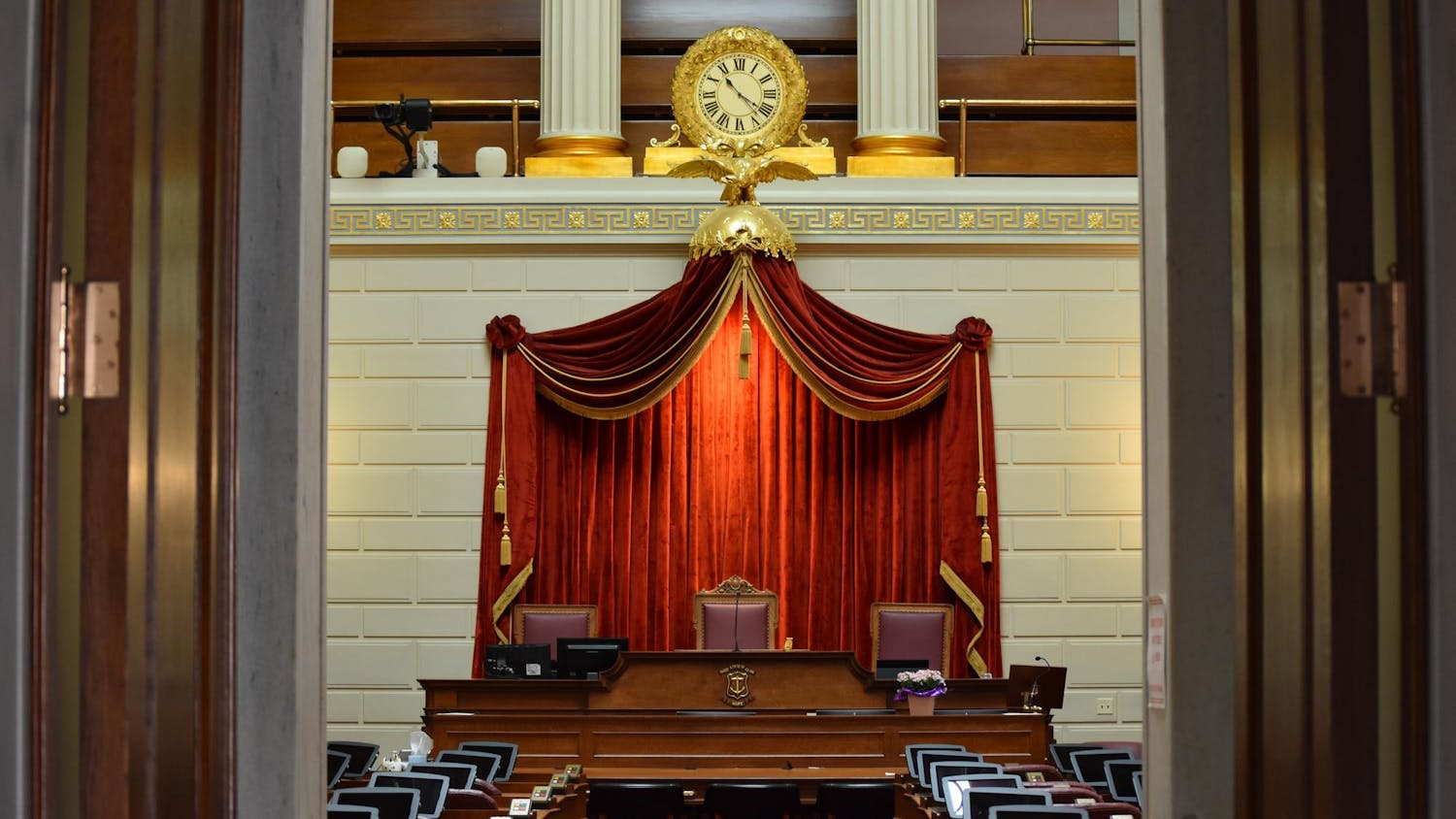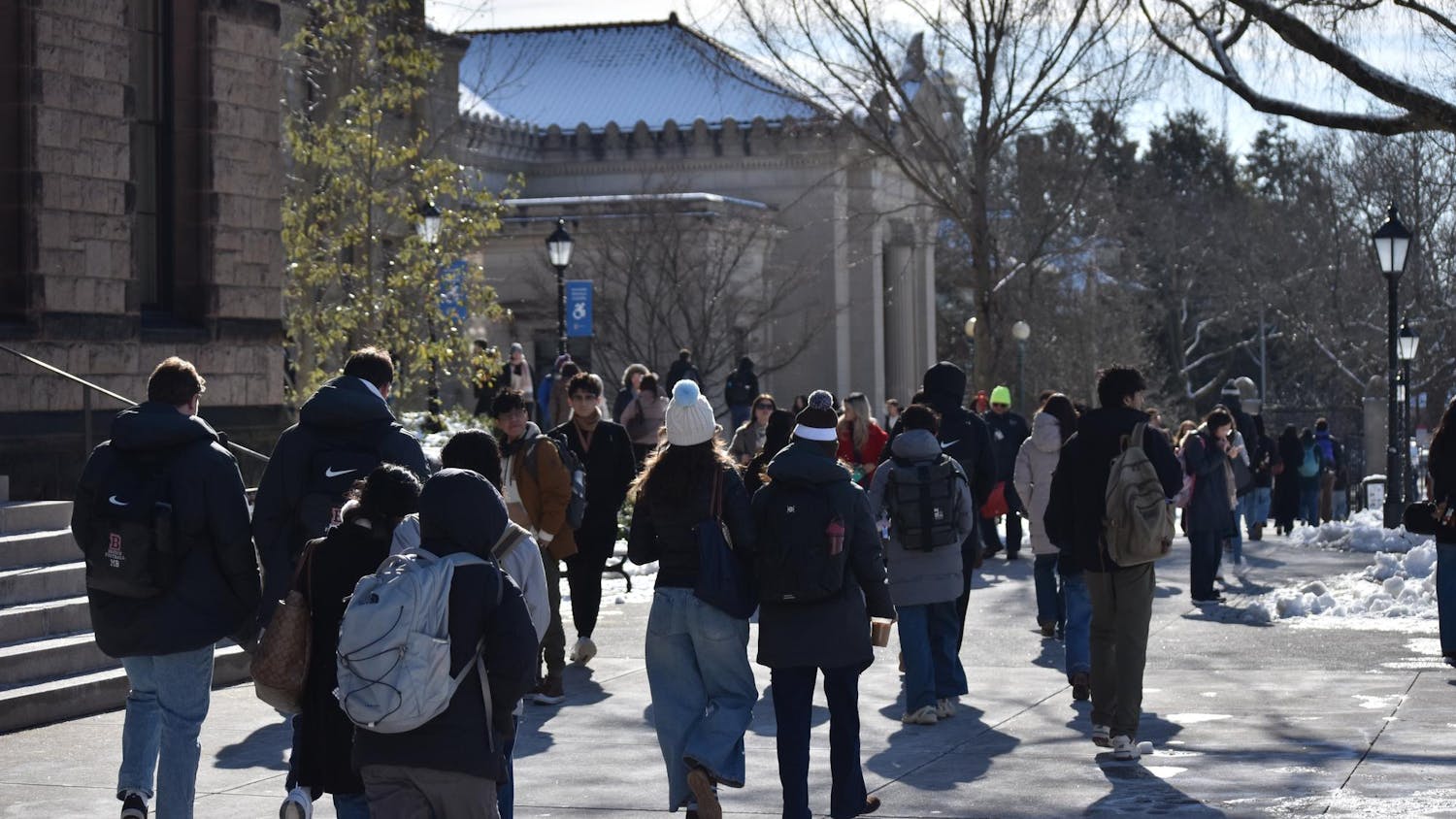In a special meeting today, the Brown University Community Council voted to recommend that five student representatives “conducting activism for divestment” be allowed to present their case for divestment from “companies which profit from human rights abuses in Palestine” before the Corporation. The council also voted to recommend that charges be dropped against 41 students arrested at a Dec. 11 sit-in.
The first motion passed with 17 yes votes, 13 no votes and one abstention. The second motion passed with 17 yes votes, nine no votes and five abstentions. Voting was conducted anonymously via a Google Form. Before each vote, council members took turns speaking to discuss the motions on the table, ask clarifying questions and propose amendments.
Today’s vote took place virtually on Zoom after being pushed from last Monday’s meeting, when Provost Francis J. Doyle brought a motion to postpone it due to President Chistina Paxson P’19 P’MD’20 being in virtual attendance.
The meeting was moved virtually “to maximize opportunities for attendance and ensure that voting can be done via online polls,” according to an internal email to BUCC members reviewed by The Herald. The special session was also limited to one hour with no opportunities for public comment, unlike traditional BUCC meetings.
The BUCC is a 38-member University advisory body made up of current undergraduate and graduate students, alumni, faculty, staff, trustees and administrators. The council is charged with the ability to “consider and advance questions of University community policy, the governing of the University … and to make recommendations regarding any such matters to the appropriate decision making bodies,” according to its website.
Recommendations passed by the BUCC are non-binding and made in an advisory capacity.
Ma. Irene Quilantang GS, who brought the motion last Tuesday to allow students to present their case to the Corporation, recounted the University’s history of divestment during the meeting. Quilantang referred to Brown’s 1987 divestment from South African apartheid.
“We divested because we recognized that divestment does not mean that we are taking sides, but rather that it is a step towards neutrality,” she said.
Brown community members holding banners reading “drop the charges” and “advance divestment” were visible standing behind Quilantang. The demonstration was organized by the Palestine Solidarity Caucus and the Graduate Labor Organization, according to GLO President Sherena Razek GS.
BUCC member and Swearer Center Executive Director Mary Jo Callan asked Paxson whether she had previously discussed the Brown Divest Coalition’s critical edition of a 2020 ACCRIP report with the Corporation.
Though the Corporation discussed the divestment proposal during their February meetings, “there was pretty strong consensus that a new proposal should go through the established process… to make sure that all members of the community had an opportunity to give input,” Paxson responded.
Council member and Senior Lecturer in Classics David Buchta proposed an amendment to the motion to specify that the council recommends that five students present a divestment proposal to the Corporation. The amendment passed with 26 yes votes, one no vote and four abstentions.
Council member and Assistant Professor of Africana Studies and Political Science Ainsley LeSure asked why Paxson did not approve the 2020 ACCRIP report’s recommendation on divestment.
In response, Paxson said that advisory committees on investment are “not always supposed to determine whether or not there’s social harm. They’re supposed to assess: … how will it have an impact on that social harm? Will it matter?” According to Paxson, these concerns were inadequately addressed in the initial report.
Paxson also distinguished between current and past demands for divestment.
“When the university divested from South Africa, there was a very clearly defined list of companies that were and were not abiding by the Sullivan principles. That was easy. Divesting from tobacco, we knew what tobacco companies were,” Paxson said. “Divesting from companies that are implicated in occupation … it’s very different from any divestment action that Brown has ever taken before. And I think that’s a serious concern.”
When discussion moved to the second motion on the table, which concerned dropping charges against 41 students arrested in December, Senior Vice President for Communications Cass Cliatt said that the University should “teach accountability for (students’) choice.”
“As a Black woman, I’ve struggled with this idea of galvanizing change through a deliberate choice and then asking for the charges against me to be dropped,” Cliatt said. “When I think about the history of civil disobedience, there wasn’t the privilege to ask for charges to be dropped … So I struggle with this idea of changing a narrative of what protesting activism is at the last moment.”
Aiyah Josiah-Faeduwor ’13, who brought the motion to recommend charges be dropped at last Tuesday’s BUCC meeting, responded that the arrested students “are not asking for their charges to be dropped.”
“We are advocating on their behalf,” he added.
At the end of the meeting, Paxson thanked council members and said that while she considered the vote and the discussion was “advisory to me.”
Prior to proposing the motions last Tuesday, BUCC members had discussions with representatives from the Palestine Solidarity Council and the Graduate Labor Organization.
“We mobilized the community council in the weeks leading up to this vote to take the two motions to the table which are consistent with GLO’s demands to divest and drop the charges,” Razek wrote in a message to The Herald.
Josiah-Faeduwor told The Herald that after witnessing PSC and GLO members speak at multiple BUCC meetings this semester, he and other BUCC members “took the stand together to hear them out, our own politics aside, simply for the fact that we as a community body should be responsive to asks of us and not dismissive.”
Razek “and PSC were prime movers here,” BUCC Executive Committee Member Daniel Newgarden ’25 wrote in a message to The Herald. “We’d put divestment on the schedule as an executive committee far in advance, but without PSC getting involved,” a vote would have been unlikely, he wrote.
According to Newgarden, discussions with PSC began in early April. In the following weeks, he and other BUCC members reached out to the rest of the council, meeting with faculty and administrators to discuss potential motions. The final vote tallies exceeded what they expected, Newgarden added.
“Today I did, and will always do, what young people ask of me … because they are seeing and living through a reality we are further and further removed from,” Josiah-Faeduwor wrote in a message to The Herald. “I’m glad the votes passed, but these votes were asking for the bare minimum from a committee ostensibly dedicated to serving the community, and they barely passed.”
After both motions passed, Josiah-Faeduwor and Newgarden walked out to the encampment on the Main Green.
“Despite this being a BUCC vote, it’s an effort of the broader campaign for divestment and was supported by the whole coalition, and I was so grateful to be part of it,” Newgarden wrote.
“The encampment is ecstatic that the BUCC started to pass these two resolutions, they are exactly our demands,” a BDC spokesperson told The Herald. “This shows that even though the BUCC is an advisory council, the Brown community is behind this wider push for divestment.”
In his two years on the council, the council has never voted on a recommendation, Josiah-Faeduwor said. He recalled corresponding with Paxson in March about bringing “more constructive dialogue” to BUCC sessions.
In an email Josiah-Faeduwor shared with The Herald, Paxson responded that she had “come to the conclusion that discussions in forums like the BUCC — with a lot of people in the room, cellphones out, and BDH coverage — will necessarily be performative rather than productive, at least as currently structured.”
“We may need to rethink how these meetings work next year,” Paxson wrote.
Cliatt wrote in an email to The Herald that “the president wasn’t characterizing the ‘forums like the BUCC’ as performative, but rather she was speaking of what happens to ‘discussions’ when there are certain environmental factors that make them spectator events.” She added that the presence of an “audience factor” might impede discussions.
“Therefore, we’re considering that the format might need to be restructured to ensure thoughtful discussions where we minimize the potential that participants feel in any way influenced… or that they feel hesitant to share their views at all” due to possible recording for social or news media, Cliatt wrote. “This is when more productive discussions can happen.”
Clarification: This article was updated to reflect LeSure's full title.

Anisha Kumar was the senior editor of community and standards of The Herald's 135th editorial board. She previously served as a section editor covering University Hall and international student life. She is a junior from Menlo Park, California concentrating in English and Political Science who loves speed-crosswording and rewatching sitcoms.





